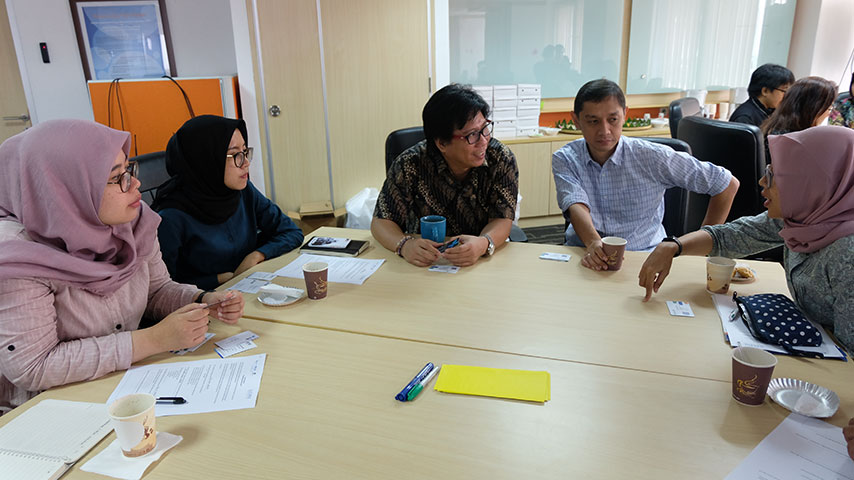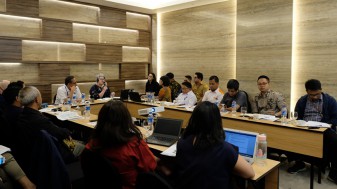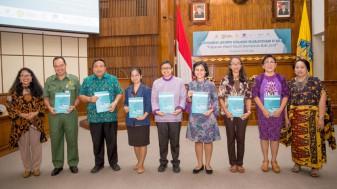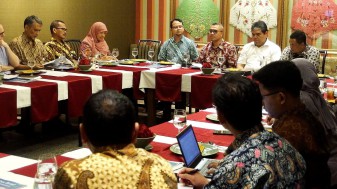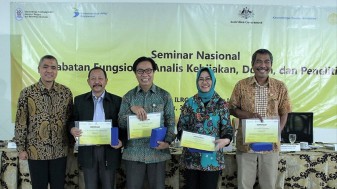Developing public policies based on evidence is a key challenge for today’s policymakers. But partnerships between government, industry, research organisations and universities can help support good policy making.
“Policy research organisations, universities and the private sector are an important source of policy analysis," said Erna Erawati, Head of the Center for Policy Analysis at the National Institute of Public Administration (LAN). Her comments were made at the Research and Business Forum, hosted by CCPHI (Partnership for Sustainable Community) and the Knowledge Sector Initiative on 27 November 2018. The event, which examined the contribution of policy analysts and the private sector to the policymaking process, was attended by more than 30 representatives from government, the private sector, non-government organisations and professional associations.

Policy analysts are not only located in government, but can also be found in academia, non-government organisations and the private sector, she added. To help ensure the quality of policy analysis, the National Institute of Public Administration was developing a standard curriculum and training modules.
The fact that many companies do policy analysis highlights the importance of public policy to the private sector. Public policy has a major influence on the operating environment for businesses and understanding this environment helps companies to operate effectively. Good public policies will provide much-needed certainty to help companies expand their markets, and support the development of business plans, operational procedures and risk management strategies.
Basrie Kamba, from the Board of Management of Indonesia Business Links, said that transparency and integrity were crucial for public policy making and that the private sector expected public policies to be based on evidence. Openness was particularly important in relation to the links between the private sector and government policymakers.
"For example, because lobbying is often done behind closed doors, the public associates it with bribery when in fact this is not the case," Basrie said.
Basrie added that lobbying was actually only a meeting between the government and the private sector. He suggested that rules and procedures should be developed to govern lobbying. If lobbying is carried out openly, academics and non-government organisations can monitor it. This will help avoid misconduct, including bribery.
In lobbying and other partnership meetings, policy research organisations and the private sector need to be more proactive in putting forward policy recommendations based on their research, Basrie said. This would help build stronger relationships between government, industry and policy research institutions.
Senior Advocacy Manager of EuroCham Indonesia, Eka Wahyuni, %u200B%u200Bsaid industry was a key partner to the government, which could provide recommendations to support the development of effective public policies. She hoped the government would involve the private sector and research institutions in developing policies.
At the same time, Eka suggested that the private sector needed to be willing to look beyond profit and see the bigger picture. She encouraged companies to do their own research, and to come up with recommendations to inform policy, based on their findings.
“Businesses associations can also do research. This helps share costs, and means that results benefit more than one business," Eka said.
She also encouraged research organisations to develop clear and practical recommendations based on their research that government and the private sector can apply to policy and practice. Evidence-based recommendations would help improve public policies.
In closing the event, Erna Erawati said that the government did not yet actively seek out input from the private sector in developing policy. She hoped that in future, there would be stronger collaboration between government and industry in identifying gaps in existing public policies and developing appropriate policy responses.

